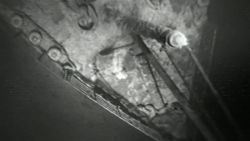Female sushi chefs are a rare sight in Japan.
In an industry backed by deep-rooted stereotypes and beliefs, men generally dominate the sushi counter. But Yumi Chiba is out to defy tradition.
“When it comes to sushi chefs, people say ‘You are a woman and your body temperature is high, so you can’t make proper sushi,’ she tells CNN Travel. “Who decides that?”
Following in the family business, Chiba now runs the restaurant her father opened nearly five decades ago, Anago no Uotake Sushi.
In the city of Shizuoka on Japan’s southern coast, it’s about a two-hour train ride from Tokyo.
Chiba has been making sushi for 20 years but, in the beginning, she never intended to follow in her father’s footsteps.
“I wanted to avoid it [becoming a sushi chef] and I left home and lived in Tokyo for 10 years,” she says.
“I only returned to Shizuoka when I was getting married and helped at the restaurant as a part-timer. The more I learned, the more interested I was. I asked my father, ‘I want to make sushi and could you teach me?’ He didn’t think I’d eventually take over the restaurant.”
Chiba’s father was her mentor and helped her become one of Japan’s most renowned female sushi chefs, but there were lessons he couldn’t prepare her for.
Chiba says she faced many obstacles working as a female sushi chef, although she was not surprised by the focus on her gender.
‘A sushi chef is a sushi chef’
“The challenges I faced in the sushi-making world were all within my expectations,” she recalls.
“For example, people would say the temperature of hands was warm, people pointed out I was wearing make-up and people always asked me all sorts of questions about being a female sushi chef.
“People often tell me ‘You must make sushi more delicate because you are a woman,’ but that’s totally wrong. There’s no femininity or masculinity when it comes to making sushi. A sushi chef is a sushi chef.”
Seven years ago, Chiba discovered she had cancer. Months later, after a successful operation, she returned to the restaurant with a new perspective on how she would live her life – without regrets.
“At that time, I was grateful to people around me, grateful to the things around me, and even grateful for the situations I was in because you really never know what will happen,” she says.
“‘I can do this later. I’ll do it tomorrow’ – these words didn’t work for the situation I was in. So in order not to have regrets, I learned to live every moment with all my energy.
“To me, making sushi means to make customers in front of me happy. When I die, I’ll feel I was happy to become a sushi chef. I’m glad that I’ve done that.”
Anago no Uotake Sushi (穴子の魚竹寿し), 122, Kusanagi, Shimizu-ku, Shizuoka-shi, Shizuoka, 424-0886. (〒424-0886 静岡市清水区草薙122);+81-54-345-8268
















